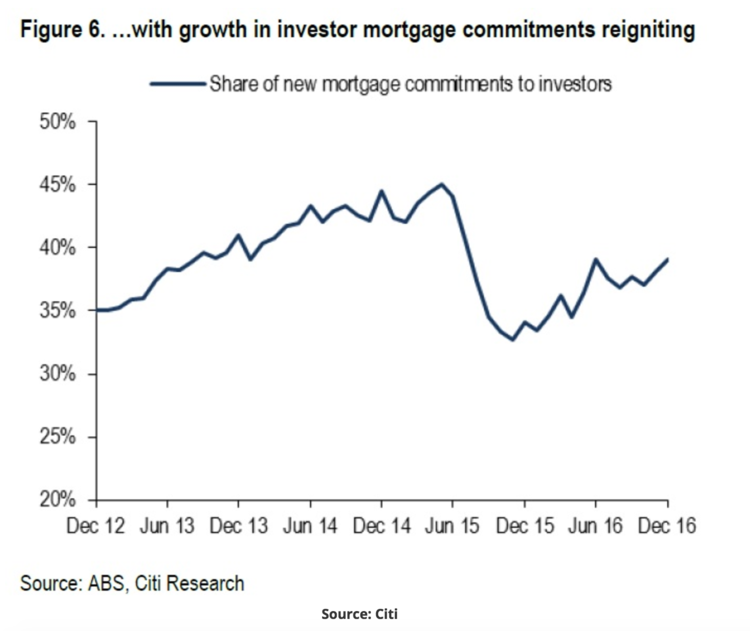- Suite 17 / 79 Manningham Road, Bulleen VIC 3105
- 0406 197 099
- hello@pmafinance.com.au
Millennials need the ‘Bank of Mum and Dad’ for more than just housing

The economy’s great growth comeback may not be so great after all
02/03/2017
OECD warns of ‘rout’ in house prices if investors head for the doors
03/03/2017IT LOOKS like a home isn’t the only thing struggling millennials might miss out on if they can’t rely on help from the ‘Bank of Mum and Dad’. And it’s all thanks to rising house prices.
New research from the Australian Housing and Urban Research Institute (AHURI) by researchers from RMIT University and Curtin University has shown a correlation between university education and intergenerational wealth transfers through housing.
The report, A new look at the channels from housing to employment decisions, found that people who receive cash transfers or inheritance from their parents — who have benefited from booming house prices — are more likely to hold a bachelor’s degree than those who can’t get the help from mum and dad.
According to the report, 29 per cent of those who received a cash transfer from their parents have a bachelor’s degree, while only 21 per cent of those that didn’t obtained a bachelor’s degree at university.
Similarly, 18 per cent of those who received an inheritance have a bachelor’s degree, compared to 15 per cent of those who didn’t.
The study examined the link between education and intergenerational housing wealth transfers
by using data collected from the extensive Household, Income and Labour Dynamics in Australia (HILDA) Survey, and then designing a ‘control group’.
Every person who has received an inheritance or cash transfer from parents is matched to a control who has not been a beneficiary, but is judged to be similarly likely to have received one given their personal characteristics.
And on top of being more likely to go to university, they are also more likely to be entrepreneurial and set up their own business. Seventeen per cent of those who received a cash transfer thanks to mum and dad’s capital gains were self-employed, compared to 11 per cent of those who didn’t.
The reason for this comes down to the effect the housing market has on financial stability and risk-taking.
“Housing assets are the largest component of most households’ wealth portfolio and are typically more liquid than superannuation balances. Housing is therefore an important source of intergenerational wealth transfers,” the report stated.
“The research reported is motivated by the idea that beneficiaries [of intergenerational wealth transfers] might make different choices with respect to their education and work careers, because they can afford to take more risks and the cash sums received could help relax borrowing constraints.”
Essentially, those that can rely on their parents’ capital gains being able to provide a financial security blanket feel less nervous about spending time and money on further education or taking a leap of faith.
But while that may seem pretty straightforward, Professor Gavin Wood, one of the report’s authors from the RMIT University Centre for Urban Research, said the findings are “significant” in terms of comparing the quality of life between generations.
“They may not be surprising but they do have a wider significance — in respect to the intergenerational divide between Generations X and Y and Baby Boomers,” Professor Wood told news.com.au.
“There is the argument that Baby Boomers have benefited hugely from rising house prices, free higher education, and permanent and secure jobs. Whereas the offspring of Baby Boomers — Generation X and Y — have not had such advantages in life. They face much higher house prices relative to income, so it is much harder to become homeowners, and they now have to pay for higher education.”
The findings are also significant in terms of how housing affordability and rising house prices affect equality.
Not all Baby Boomers can afford to pass on housing wealth gains to their children, meaning opportunities for some millennials — who already face an uphill battle — are even further away.
“On the one hand you can argue [the ‘Bank of Mum and Dad’] is helping to bridge that generational divide, but on the other hand, it could well be entrenching wider inequality. These bequests and transfers and gifts are exacerbating inequality in our society,” he told news.com.au.
“This intergenerational circulation of housing wealth can help to bridge that divide, but only for those who are fortunate enough to have parents that are able and willing to transfer wealth.”
Source: news.com.au





